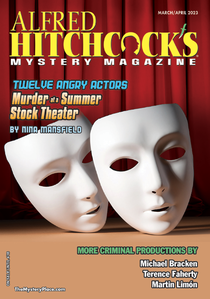I enjoyed reading Tom's entry about critique groups. I've belonged to a venerable group for years, and they have been invaluable to me, especially by helping me decide which way to go on stories. One thing I've learned from allowing my work to be critiqued is that often what I think I wrote and what readers think I wrote are two entirely different things. One difference between my group and Tom's (besides the wine. I must make a note about that) is that my group is quite small and is made up of only traditionally published authors.
However, a good critique group is a fabulous resource for any writer! So if you write, find one that meets your needs!
Speaking of sharing knowledge, I'm going to be spending the next three months as Writer in Residence for the Glendale Arizona Public Library system. Writer in Residence programs are meant to inspire both budding and experienced authors. I've done WIR programs before, and sometimes I learn as much as the attendees! It's quite an intense experience, so check your local library's website to see if your town offers such a program! Residents can ask questions and bring writing for the WIR to review during free, half-hour consulting sessions at the library. The WIR also offers free writing workshops during their tenure.
Here are the workshops I'll be offering this fall at Glendale:
Creating the World of Your Story: Learn how to create a setting that is authentic as possible at 6:30 p.m. on Sept. 12 at Heroes Regional Park Library, 6075 N. 83rd Ave.
The Plot Thickens: Learn techniques to maintain readers’ interest throughout the novel at 3 p.m. on Sept. 21 at Foothills Library, 19055 N. 57th Ave.
Dialog, Dialect and Voice: Discover how you can use dialog to reveal information about your characters at 6:30 p.m. on Oct. 17 at Velma Teague Library, 7010 N. 58th Ave.
Memoir and Autobiography: Learn how to use personal memories in powerful storytelling at 6:30 p.m. on Oct. 21 at the Main Library, 5959 W. Brown St.
Characters are Everything: Explore proven techniques for creating compelling characters at 6:30 p.m. on Oct. 28 at Foothills Library, 19055 N. 57th Ave.
Getting Published: Delve into ways to get your book or story published at 6:30 p.m. on Nov. 21 at Foothills Library, 19055 N. 57th Ave.
To learn more about the Writer in Residence and other Glendale Public Library programs, visit Home - Glendale Public Library (glendaleazlibrary.com)








